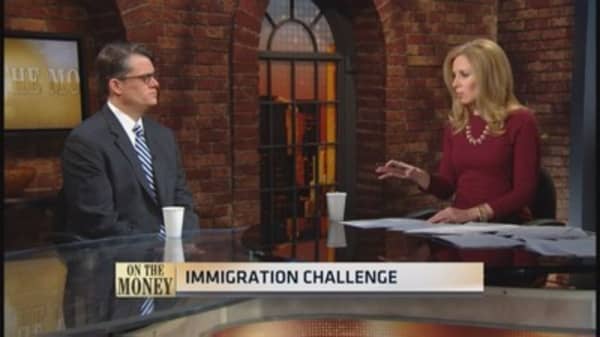The Obama administration is plotting its next move to rescue expanded immigration deferred-action programs blocked by a Texas judge. Undocumented immigrants who may qualify for the programs are wondering whether the programs will ever go into effect. Here's why the judge's order is actually a good thing for both the president and the immigrants who may have qualified under the announced programs.
U.S. District Judge Andrew S. Hanen ruled that there was a strong likelihood that the administration should have followed the federal Administrative Procedure Act before announcing the programs as a done deal. According to the judge, the nature of these expanded programs was such that the public should have been given notice and a chance to weigh in before the programs took effect.
Read MoreImmigration stalemate: the economic toll
First, the order is good for the undocumented immigrants who may qualify for these programs. There is at least a chance that Judge Hanen's order is correct. The court's 123-page order is not some shoddy political hit piece by an anti-immigrant judge as is being portrayed in some quarters. It is a careful, narrowly reasoned application of a federal law that is designed to ensure that far-reaching administrative regulations do not go into effect without the public having an opportunity to give input to the issuing federal agency.




